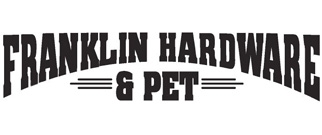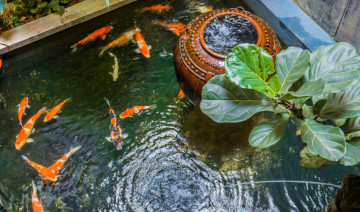Stocking your pond with fish is the finishing touch to creating a unique and vibrant fixture for your garden or landscape. There are many more pond stocking considerations, however, than just choosing which fish to add to the water.
The Purpose of Your Pond
Which fish you choose to stock your pond with will vary depending on why you have the water feature. A pond intended as a landscape focal point for relaxation and meditation, for example, should be stocked with different fish than a pond meant for recreational fishing or one meant to harvest fish for food. Each type of pond has different needs to keep the fish population productive and healthy, and it is also important to consider other regional factors and needs to ensure the proper stocking.
Considerations for Stocking Your Pond
Depending on the ultimate plan for the pond, you must consider the following factors when choosing fish for stocking.
- Pond Size – The surface area and overall depth of the pond will help determine which fish will best thrive in the environment. Consider the gallon capacity of the pond, as well as how much territory individual fish prefer when choosing stocking options.
- Fish Size – You may be able to fit many small fish in a pond, but how quickly do the fish grow and what is their average adult size? Calculate stocking populations based on adult fish rather than fingerling sizes.
- Breeding Productivity – Different fish breed differently, which impacts how fast a population can grow. If you choose very productive fish, stock with fewer individuals for easier population control to keep the pond from getting overcrowded.
- Predatory Behavior – A well-balanced pond may still need some predatory fish to keep more productive fish in check, but take care not to choose overly aggressive species that will wipe out other fish populations.
- Diet – Understanding what fish eat can help you choose the best species to stock your pond. If your pond has a lot of plants and algae, weed control fish will be necessary, or you may need a predatory fish to keep fast-breeding species under control.
- Climate – Regional climate must be considered when choosing appropriate pond fish. Note season lengths, average temperatures, rainfall totals, and other climate factors that will influence the health of your pond and choose fish that can adapt easily to those conditions.
- Pond Condition – The overall pond condition in terms of water pH, clarity, algae growth, types of plants, available underwater hiding places, turbidity, oxygen levels, and shade cover will all influence the marine habitat and which fish will be best suited to the pond.
- Cost – Don’t forget to factor in your budget when stocking your pond. Not only are some fish far more expensive, but the pond may require more maintenance to stay healthy and productive depending on which fish species it houses.
Top Fish for Pond Stocking
There are many different fish that can stock a pond, depending on the conditions of the habitat and the expectations for enjoying the fish. Decorative fish like koi are best for a small, meditative pond where the fish will not be disturbed. Grass carp and white amur are great choices for weed control if a pond has a great deal of algae or overgrown plants.
If sport fishing is the ultimate goal of the pond, species like rainbow trout, redear sunfish, and largemouth bass are great choices for catch-and-release, while channel catfish and blue catfish are better for food harvesting. Finally, adding forage fish as food for other species can keep the pond in balance and healthy. Fathead minnows, bluegills, and golden shiners are top choices as forage fish.
Many types of fish can do double duty with the pond roles, and it is important to investigate how different species will interact if you choose to stock your pond with different fish. Consulting the state’s Department of Natural Resources as well as seeking advice from successful pond owners can help provide appropriate guidance as well as personalized recommendations to ensure the best possible pond stocking.






Comments